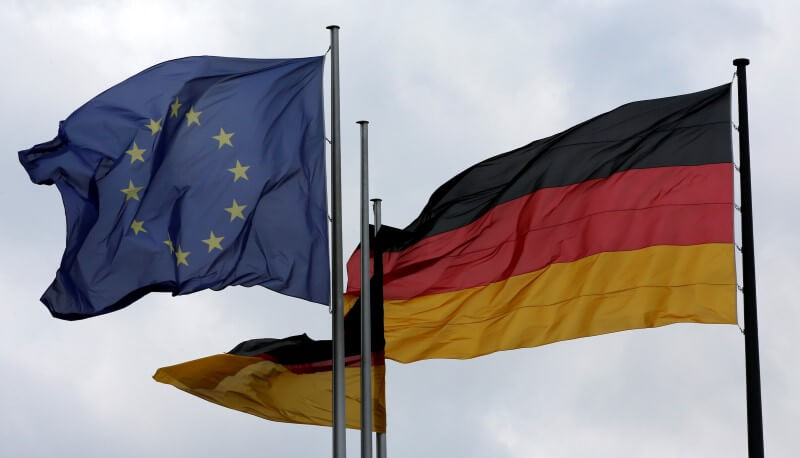By Paul Carrel and Michael Nienaber
BERLIN (Reuters) – Germany’s chambers of commerce lowered its sights for exports to Britain on Thursday, forecasting a darkening trade outlook as the impact of Britons’ vote to leave the European Union seeps into the euro zone economy. Trade ties between Britain and Germany, Europe’s largest economy, are close: Britain is Germany’s fifth-biggest trading partner for goods. For the UK, Germany is the biggest partner.
But Britons’ June 23 vote to leave the EU is feeding German businesses’ uncertainty about their future trading relationship with Britain. Chancellor Angela Merkel has insisted London not be allowed to “cherry pick” parts of the EU it wants to keep. “Brexit will hurt the German economy in the long term,” said Eric Schweitzer, president of the DIHK Chambers of Industry and Commerce, which now sees a 1 percent drop in exports to Britain this year, down from a previously expected 5 percent rise. In 2017, it expects a 5 percent fall in exports to Britain.
“Companies will export less to Britain, they are planning to scale back investment and staffing on the island and they are afraid of more trade barriers,” added Schweitzer.
Such statements have major implications for Britain, where German companies employ some 500,000 workers, according to German Industry UK, an organization of some 100 chief executives of companies in Britain with a German majority shareholding. German employers in Britain include BMW Car sales in Britain fell in June and analysts at LMC Automotive said the Brexit vote would slow UK car sales demand in the second half of this year – unwelcome news for Germany’s automakers. The Brexit impact is rippling out beyond Germany. Sentiment in the euro zone fell to an 18-month low in July. In Ireland, business expectations in the services sector tumbled in June on concerns Brexit would lead to a slowdown in activity. In minutes released on Thursday from its June 2 meeting, held before the British referendum, the European Central Bank said a Brexit vote could bring “significant, although difficult to anticipate, negative spillovers to the euro area via a number of channels, including trade and the financial markets.” “MAJOR RISK”
A healthy British economy is important to Germany. Last year, German companies exported goods worth some 89 billion euros ($98.61 billion) to Britain, making it their third-most important export destination. Heavily reliant on exports for jobs, the German economy is already suffering from weakening global demand for its industrial goods due to a slowdown in emerging markets.
In May, even before the Brexit vote, German industrial output posted its steepest monthly drop since August 2014, suggesting the economy lost steam in the second quarter after a surprisingly strong start to the year. Commerzbank economist Ralph Solveen said German growth could come to a near-halt in the second quarter and expand by just 0.1 percent. In the first quarter, the economy grew by 0.7 percent.
The outlook does not get any better for the second half.
“The uncertainty surrounding the Brexit topic poses a major risk to the German industrial sector from June onwards,” said UniCredit economist Tobias Ruehl, though he stressed that Germany’s manufacturing base is not fundamentally weak. Mindful of Germany’s close economic ties with Britain, Merkel has resisted pressure from other European countries – led by France – to get on with organizing Britain’s EU exit, instead calling for patience with London. But tax policy is already shaping up as a policy battleground between Britain and other European states as they seek to derive the best terms they can from the Brexit decision.
The French government pledged on Wednesday to make its tax regime for expatriates the most favorable in Europe in a landgrab for London banking business displaced by Britain’s decision to quit the EU. Responding to reports that Britain’s George Osborne plans to cut corporation tax to less than 15 percent, German Finance Minister Wolfgang Schaeuble said on Wednesday Berlin does not want a “race to the bottom” on tax policy in Europe. (Writing by Paul Carrel; editing by Ralph Boulton)
German firms lower UK export sights as Brexit bites eurozone

By Paul Carrel and Michael Nienaber
















